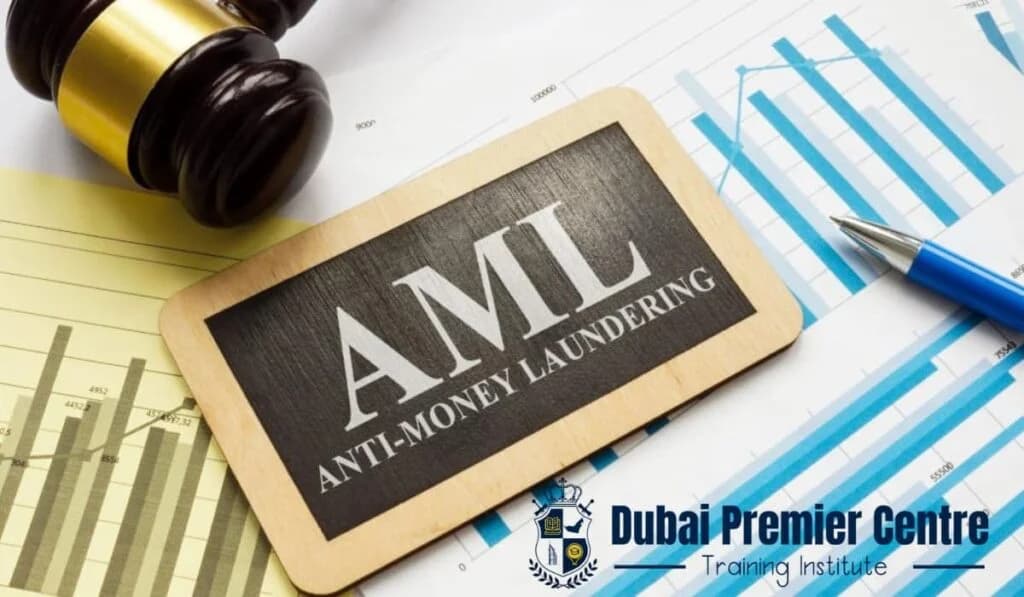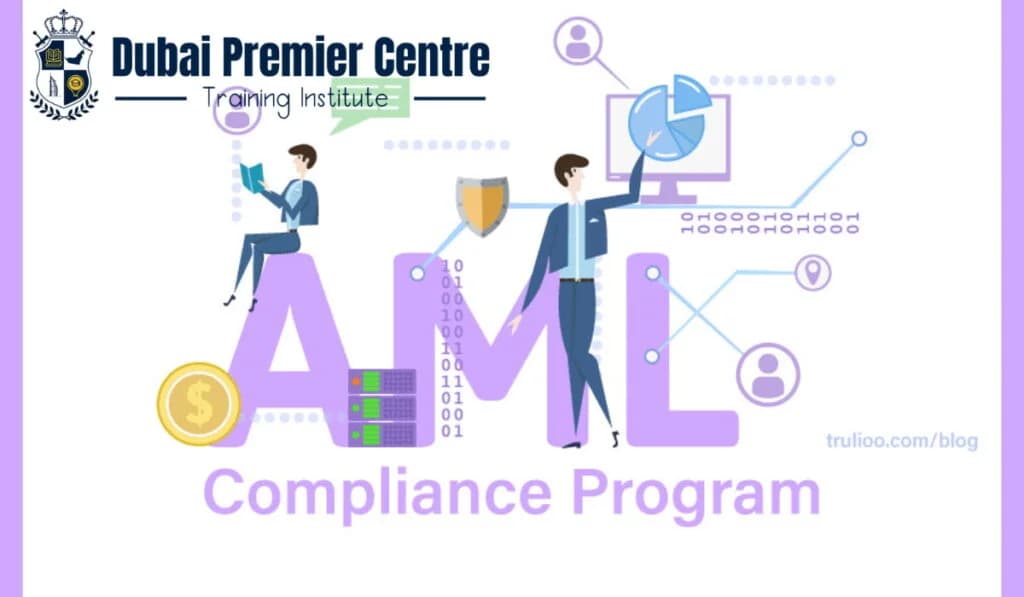AML Regulations, laws, and Obligations in GCC, USA, and UK

Money laundering and terrorism financing are significant global concerns, with trillions of dollars laundered annually. The financial integrity of nations depends on the strict implementation of anti-money laundering (AML) and counter-terrorism financing (CTF) measures. This article explores the AML regulations, laws, and obligations in the GCC, USA, and UK, focusing on key regulators, compliance requirements, and reporting obligations.
Most Well-Known AML Regulators
In the landscape of anti-money laundering (AML) regulation, several key organizations and authorities stand out for their influence and effectiveness in combating financial crimes globally. Here are the most recognized AML regulators:
- Financial Action Task Force (FATF)
- Established in 1989, the FATF is an intergovernmental organization that sets international standards to combat money laundering and terrorist financing.
- It issues recommendations that member countries are expected to implement, promoting a coordinated global response to financial crime. FATF conducts mutual evaluations to monitor compliance among its 37 member jurisdictions.
- Financial Conduct Authority (FCA)
- The FCA is the regulatory body for the financial services industry in the United Kingdom. It oversees compliance with AML regulations among financial institutions.
- Its responsibilities include setting rules, supervising firms, and enforcing compliance to protect consumers and ensure market integrity.
- Financial Crimes Enforcement Network (FinCEN)
- FinCEN operates under the U.S. Department of the Treasury and is responsible for enforcing AML laws in the United States.
- It administers the Bank Secrecy Act, requiring financial institutions to report suspicious activities and maintain comprehensive records.
- Monetary Authority of Singapore (MAS)
- MAS serves as Singapore's central bank and financial regulatory authority, overseeing AML compliance within its jurisdiction.
- The authority enforces strict regulations against money laundering and terrorist financing, imposing significant penalties for non-compliance.
- Hong Kong Monetary Authority (HKMA)
- The HKMA regulates Hong Kong's banking sector and implements AML measures to combat financial crimes.
- It ensures that financial institutions adhere to established AML policies and practices.
- Australian Transaction Reports and Analysis Centre (AUSTRAC)
- AUSTRAC is Australia’s primary financial intelligence agency, responsible for monitoring compliance with AML laws.
- It collects financial transaction reports from institutions to detect and prevent money laundering activities.
- United Nations (UN)
- While not a regulatory body per se, the UN plays a vital role in establishing international legal frameworks against money laundering through various conventions and resolutions.
- It encourages member countries to adopt and implement laws that combat money laundering and promote global cooperation
Banking Regulatory Commissions in the USA, GCC, and UK
- United States
In the U.S., banking regulation is highly fragmented, with multiple federal and state agencies overseeing financial institutions. Key regulatory bodies include:
- Federal Reserve System (Fed): The central bank of the U.S. responsible for monetary policy and supervising state-chartered banks that are members of the Federal Reserve System.
- Office of the Comptroller of the Currency (OCC): Regulates national banks and federal savings associations, ensuring they operate safely and soundly.
- Federal Deposit Insurance Corporation (FDIC): Insures deposits at banks and thrifts, supervises state-chartered banks that are not members of the Fed, and manages receiverships.
- Consumer Financial Protection Bureau (CFPB): Oversees consumer protection in financial services, including enforcing regulations related to mortgages, credit cards, and other consumer financial products.
- Federal Financial Institutions Examination Council (FFIEC): Coordinates the federal examination of financial institutions to ensure compliance with laws and regulations.
State banking regulators also play a significant role, as many banks operate under state charters and are subject to additional regulations from their respective state agencies.
- Gulf Cooperation Council (GCC)
The GCC comprises six member states—Bahrain, Kuwait, Oman, Qatar, Saudi Arabia, and the United Arab Emirates—each with its own banking regulatory authority. Key regulators include:
- Central Bank of Bahrain: Regulates banks and financial institutions in Bahrain, ensuring compliance with AML/CFT laws.
- Central Bank of Kuwait: Oversees the banking sector in Kuwait, implementing monetary policy and ensuring financial stability.
- Central Bank of Oman: Responsible for regulating commercial banks in Oman and maintaining monetary stability.
- Qatar Central Bank: Regulates financial institutions in Qatar and ensures compliance with banking laws.
- Saudi Arabian Monetary Authority (SAMA): The central bank of Saudi Arabia that supervises banks, insurance companies, and finance companies.
- Central Bank of the UAE: Oversees the banking sector in the UAE, ensuring compliance with international standards.
These regulators work collaboratively within the GCC framework to enhance regional financial stability and compliance with international standards 1.
- United Kingdom
In the UK, banking regulation is primarily conducted by several key authorities:
- Bank of England (BoE): The central bank responsible for monetary policy and overall financial stability. It oversees major banks through its Prudential Regulation Authority (PRA).
- Financial Conduct Authority (FCA): Regulates conduct in financial markets to protect consumers and ensure market integrity. It supervises a wide range of financial firms including banks.
- Prudential Regulation Authority (PRA): A part of the BoE that specifically focuses on the prudential regulation of banks, insurers, and investment firms to ensure their safety and soundness.
- Financial Ombudsman Service: Provides an independent service for resolving disputes between consumers and businesses providing financial services.
- The UK's regulatory framework has evolved significantly following reforms aimed at enhancing oversight after the 2008 financial crisis.
Money Laundering and Terrorism Financing Laws in the USA, GCC, and UK
- USA
The USA’s AML framework revolves around the Bank Secrecy Act (BSA) and USA PATRIOT Act. These laws mandate:
- Comprehensive customer due diligence (CDD).
- Suspicious activity reporting (SAR).
- Record-keeping for transactions exceeding certain thresholds.
- GCC
GCC countries follow a mix of FATF standards and localized regulations. For instance:
- The UAE’s AML law (Federal Decree-Law No. 20 of 2018) includes stringent penalties for non-compliance.
- Saudi Arabia enforces the Anti-Money Laundering Law (Royal Decree No. M/31), focusing on transparency and risk-based approaches.
- UK
The UK’s AML regime stems from the Proceeds of Crime Act 2002 (POCA) and subsequent Money Laundering Regulations (MLR 2017). These laws emphasize:
- Enhanced due diligence for high-risk customers.
- Obligations to report suspicious activities to the National Crime Agency (NCA).
- Comprehensive internal controls within financial institutions.
How to Comply with the BSA and USA Patriot Act
To comply with the Bank Secrecy Act (BSA) and the USA PATRIOT Act, financial institutions must implement a comprehensive framework that addresses various regulatory requirements aimed at preventing money laundering and terrorist financing. Here’s a structured approach to achieving compliance:
Key Compliance Requirements
- Customer Identification Program (CIP):
- Establish a CIP to verify the identity of customers when opening accounts.
- Maintain records of customer identification for at least five years after account closure.
- Anti-Money Laundering (AML) Programs:
- Develop and implement an AML program that includes:Internal policies and procedures.
- Reporting Requirements:
- Currency Transaction Reports (CTRs): File CTRs for cash transactions exceeding $10,000 within 15 days of the transaction.
- Suspicious Activity Reports (SARs): File SARs for any suspicious transactions that may indicate money laundering or terrorist financing within 30 days of detection.
- Recordkeeping:
- Maintain detailed records of financial transactions, including those related to CTRs and SARs, for a minimum of five years. Ensure these records are accessible for regulatory review.
- Risk Assessment:
- Conduct regular risk assessments to identify vulnerabilities related to money laundering and terrorist financing. Tailor the compliance program based on the institution's unique risk profile.
- Ongoing Monitoring:
- Implement systems for ongoing monitoring of customer transactions to detect unusual patterns that may indicate illicit activities. This includes transaction screening and customer due diligence practices.
Additional Considerations
- Financial institutions should stay updated on changes in regulations and best practices related to BSA/AML compliance.
- Engage in information sharing with other financial institutions and law enforcement agencies as permitted under relevant laws to enhance detection and prevention efforts.
- Regularly train employees on compliance obligations and the importance of identifying suspicious activities.
- By adhering to these guidelines, financial institutions can effectively comply with the BSA and USA PATRIOT Act, thereby contributing to the integrity of the financial system and mitigating risks associated with financial crimes.
Financial Crimes Enforcement Network (FinCEN)
FinCEN serves as the USA’s primary financial intelligence unit (FIU). Its responsibilities include:
- Collecting and analyzing data from financial institutions.
- Collaborating with law enforcement to combat financial crimes.
- Issuing guidance on compliance with AML regulations.
Key Obligations for Reporting Entities in the USA, GCC, and UK
- USA
Reporting entities must:
- Submit Currency Transaction Reports (CTR) for transactions exceeding $10,000.
- File Suspicious Activity Reports (SAR) for dubious activities.
- Verify customer identities under CDD and Know Your Customer (KYC) rules.
- GCC
Reporting obligations in the GCC include:
- Filing SARs with the respective central bank.
- Conducting periodic audits to ensure compliance with national AML laws.
- Collaborating with FIUs for cross-border investigations.
- UK
UK entities are required to:
- Report suspicious activities to the NCA.
- Implement ongoing monitoring of customer accounts.
- Conduct internal audits to assess AML program effectiveness.
AML/CFT Supervisors in the USA, GCC, and UK
- United States
In the United States, the anti-money laundering (AML) and combating the financing of terrorism (CFT) framework is primarily governed by the Bank Secrecy Act (BSA). The Financial Crimes Enforcement Network (FinCEN) plays a crucial role in overseeing compliance. Key aspects include:
- Regulatory Framework: Financial institutions are required to report suspicious activities and large cash transactions to FinCEN, which helps flag potential illegal activities for law enforcement investigation1.
- Legislative Updates: Significant reforms have been introduced, such as the Anti-Money Laundering Act of 2020, which updated BSA provisions and expanded the scope of AML/CFT measures to address emerging threats1.
- Enforcement Agencies: Various federal agencies, including the Federal Reserve and the Federal Deposit Insurance Corporation, collaborate to ensure compliance with AML regulations.
- Gulf Cooperation Council (GCC)
The Gulf Cooperation Council countries have established a collaborative framework for AML/CFT supervision, emphasizing regional cooperation and compliance with international standards. Key points include:
- Central Bank Oversight: Each GCC member state has a central bank or financial authority responsible for enforcing AML/CFT regulations. These authorities implement guidelines based on recommendations from the Financial Action Task Force (FATF).
- Regional Cooperation: The GCC has initiated joint efforts to enhance information sharing and coordinate actions against money laundering and terrorist financing across member states2.
- Legislative Framework: The regulatory landscape is shaped by both national laws and collective agreements among GCC members aimed at harmonizing AML/CFT measures.
- United Kingdom
The UK's AML/CFT supervisory regime is robust and multifaceted, involving several key supervisory bodies:
- Supervisory Bodies: The UK has 25 supervisors, including three statutory supervisors: the Financial Conduct Authority (FCA), HM Revenue & Customs (HMRC), and the Gambling Commission. Additionally, there are 22 professional body supervisors from legal and accountancy sectors.
- Regulatory Developments: The UK's framework has evolved significantly with amendments like the transposition of the 5th Anti-Money Laundering Directive, broadening the scope of supervision beyond traditional financial institutions.
- Compliance and Enforcement: The FCA conducts national risk assessments and targeted inspections to ensure compliance. Recent reports indicate that hundreds of businesses have faced penalties for non-compliance, highlighting active enforcement efforts
Want to learn more about AML Regulations,laws, and Obligations in GCC, USA, and UK
At Dubai Premier Centre (DPC), we offer specialized courses on AML compliance, such as our "Anti-Money Laundering and Counter-Terrorism Financing (AML/CTF)" program. This workshop equips professionals with the knowledge and tools to navigate complex AML frameworks in global markets. Join us to enhance your expertise and ensure compliance with international standards.visit Dubai Premier Centre to learn more.
FAQ about AML Regulations,laws, and Obligations in GCC, USA, and UK
- What is the AML and CTF regulation in the UK?
The UK’s AML and CTF regulations are primarily governed by the Money Laundering Regulations (MLR 2017) and the Proceeds of Crime Act 2002 (POCA). These laws require firms to implement robust AML systems, conduct risk assessments, and report suspicious activities to the National Crime Agency (NCA).
- What are the AML regulations in the US?
The Bank Secrecy Act (BSA) and the USA PATRIOT Act are the cornerstone AML regulations in the US. They mandate customer due diligence, transaction monitoring, and reporting of suspicious activities to FinCEN.
- What is the most important AML/CTF law in the USA?
The USA PATRIOT Act is considered one of the most critical AML/CTF laws, as it strengthens measures to detect, prevent, and prosecute money laundering and terrorism financing.
- Who do AML regulations apply to in the UK?
AML regulations in the UK apply to financial institutions, real estate agents, accountants, lawyers, and other regulated sectors involved in handling significant financial transactions or providing advisory services.
Read Related Articles





